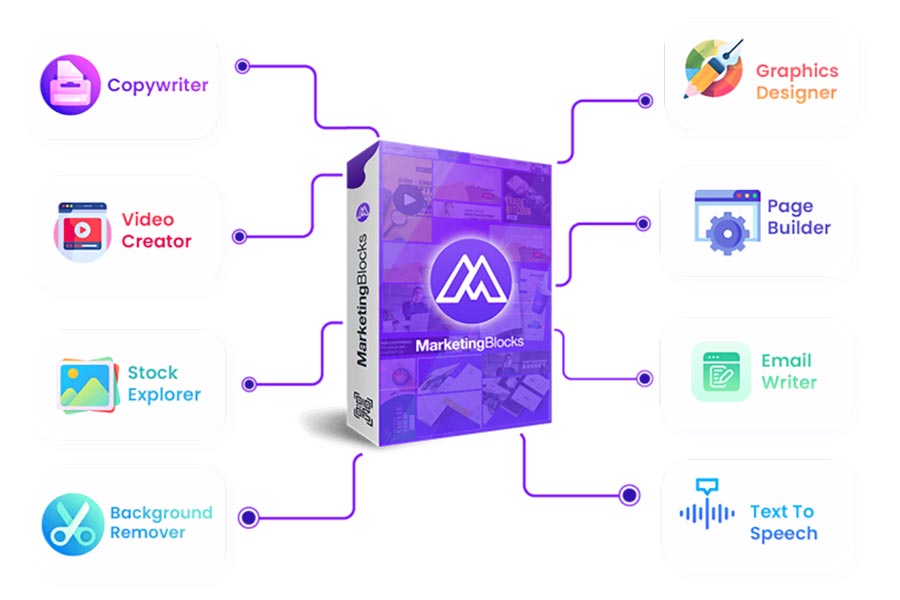Building Trust: Brand Awareness & Reputation

Brand awareness and reputation management play a crucial role in the success of any business. In today’s highly competitive market, companies must establish a strong brand identity and proactively manage their reputation. This blog will explore the significance of brand awareness and reputation management and strategies for effectively building and maintaining them.
What is Brand Awareness?
Brand awareness pertains to the level of recognition and familiarity consumers have with a specific brand. It gauges how well potential customers are acquainted with a brand and serves as a vital gauge of its market visibility. Establishing brand awareness is a continuous endeavor, entailing the cultivation of a favorable brand perception among consumers.
The Benefits of Brand Awareness
Increased Customer Loyalty: When consumers are aware of a brand and its offerings, they are more likely to develop a sense of trust and loyalty. This can lead to repeat purchases and long-term customer relationships. Building brand awareness allows businesses to cultivate loyal customers, increasing revenue and business growth.
Competitive Advantage: In a crowded marketplace, strong brand awareness sets a company apart. It helps consumers differentiate between various options and influences their purchasing decisions. By consistently promoting and reinforcing their brand, businesses can position themselves as the preferred choice among consumers, giving them a competitive edge.
Brand Equity: Brand awareness contributes to the overall brand equity, representing a brand’s value and strength. A brand with high awareness and positive associations commands higher perceived value and can justify premium pricing. When consumers are familiar with and perceive a brand positively, they are willing to pay more for its products or services. This enhances the financial performance and sustainability of the business.
The Significance of Reputation Management
Reputation management is shaping and influencing the public perception of a brand or individual. It involves monitoring and addressing any harmful or damaging information online or offline. Reputation management is vital in today’s digital age, where information spreads rapidly and can significantly impact a brand’s image.
The Benefits of Reputation Management
Trust and Credibility: A positive reputation builds trust and credibility among consumers, making them more likely to choose a brand over its competitors. Reputation management ensures that any negative information or reviews are addressed promptly, preserving the trust of existing and potential customers. By actively managing their reputation, businesses can establish themselves as reliable and trustworthy entities in the eyes of the public.
Customer Acquisition and Retention: A strong reputation attracts new customers, as people tend to seek out brands with positive feedback and reviews. Additionally, reputation management helps retain existing customers by addressing their concerns and providing satisfactory solutions. Businesses can build long-lasting relationships and foster customer loyalty by actively engaging with customers and demonstrating a commitment to their satisfaction.
Crisis Prevention and Management: Proactive reputation management allows companies to identify and address potential issues before they escalate into full-blown crises. By monitoring online conversations and engaging with customers, brands can swiftly respond to negative feedback and prevent further damage to their reputation. Timely and effective crisis management helps businesses maintain control over their narrative and minimise the long-term impact of any harmful incidents.
Strategies for Building Brand Awareness and Managing Reputation
Consistent Branding and Messaging
Maintain a consistent brand identity across all platforms and marketing channels. This includes using the same logo, colours, and tone of voice in your communications. Consistency helps reinforce brand recognition and makes it easier for consumers to remember your brand. Additionally, ensure your messaging aligns with your brand values and resonates with your target audience. Consistent branding and messaging create a cohesive and memorable brand experience for consumers.
Engaging Content Marketing
Develop a comprehensive content marketing strategy that creates valuable and engaging content for your target audience. This can include blog posts, social media updates, videos, and infographics. By providing relevant and helpful information, you can position your brand as an industry expert and build trust with your audience. Invest in high-quality content creation and distribution to maximise the reach and impact of your brand’s message.
Social Media Presence
Utilise social media platforms to connect with your target audience and amplify your brand message. Regularly post engaging content, respond to comments and messages, and participate in relevant industry conversations. Building a solid social media presence can significantly enhance brand awareness and allow you to manage your reputation actively. Leverage the power of social media analytics to gain insights into consumer sentiment and preferences, enabling you to tailor your content and engagement strategies accordingly.
Online Review Management
Monitor and respond to online reviews on Google My Business, Yelp, and industry-specific websites. Addressing positive and negative reviews promptly shows your commitment to customer satisfaction and helps build trust with potential customers. Encourage satisfied customers to leave positive reviews and testimonials to bolster your brand’s reputation. Always respond politely and professionally, offering solutions or resolutions to any issues.
Influencer Partnerships
Collaborate with influencers or industry experts who align with your brand values and target audience. Influencers can help increase brand exposure and credibility among their followers, boosting brand awareness. However, ensure your chosen influencers have genuine influence and a positive reputation. Engage in authentic and mutually beneficial partnerships to leverage the reach and influence of respected individuals in your industry.
Proactive Crisis Management
Develop a comprehensive crisis management plan that outlines the steps to be taken during a reputation-damaging incident. This plan should include strategies for addressing negative feedback, issuing public apologies or statements, and rectifying any issues. By being prepared and proactive, you can minimise the impact of a crisis on your brand reputation. Regularly monitor online conversations and use sentiment analysis tools to detect early warning signs of potential reputation threats. Swiftly respond to any negative feedback or misinformation to mitigate the damage and restore trust among your stakeholders.
Conclusion
Brand awareness and reputation management are vital components of a successful marketing strategy. By investing time and resources into building a solid brand presence and proactively managing your reputation, you can establish trust, attract loyal customers, and gain a competitive edge in the market. Remember, building a positive brand image takes time, but the long-term benefits are invaluable.
If you found this post engaging, don’t forget to explore our additional blogs below.
- Supercharge Your Business: Mastering Cross-Channel Marketing Magic!
- Influence: The Psychology of Persuasion by Robert B. Cialdini – A Word Marketing Book Summary
- Unlocking Success: Data-Driven Targeted Advertising
- The AI Revolution: Transforming Marketing & Advertising
- Introducing Our New and Improved Dewalist Marketplace Design
- Ad Ethics: Balancing Persuasion with Responsibility
- Email Showdown: Mandrill vs Mailchimp Features
- The Future of Digital Out-of-Home (DOOH) Advertising
- Revolutionising Marketing with Virtual & Augmented Reality
- Small Business Local SEO: Unleash the Power to Boost Growth
Sign up for updates on this blog and our latest posts if you enjoyed reading this one.
Help your friends and colleagues stay informed about the newest insights on business, marketing, finance, lifestyle, and society by sharing our blog content through Facebook, Twitter, Pinterest, LinkedIn, email, or WhatsApp links below. We can create a knowledge-sharing community and empower one another to accomplish and experience our objectives.
FAQ
What is brand awareness, and why is it important?
Brand awareness refers to consumers’ familiarity and recognition with a particular brand. It is essential because it helps businesses cultivate a loyal customer base, differentiate themselves from competitors, and justify premium pricing.
What are the benefits of reputation management?
Reputation management helps build trust and credibility among consumers, attracts new customers, retains existing customers, prevents and manages crises, and maintains control over a brand’s narrative.
What strategies can be used to build brand awareness?
Strategies for building brand awareness include maintaining consistent branding and messaging, engaging in content marketing, utilising social media presence, managing online reviews, partnering with influencers, and implementing proactive crisis management.
How can online reviews be effectively managed?
Online reviews can be effectively managed by monitoring and responding to them promptly, addressing both positive and negative reviews, encouraging satisfied customers to leave reviews, and always responding politely and professionally.
Credits
Featured photo by Caio on Pexels.









